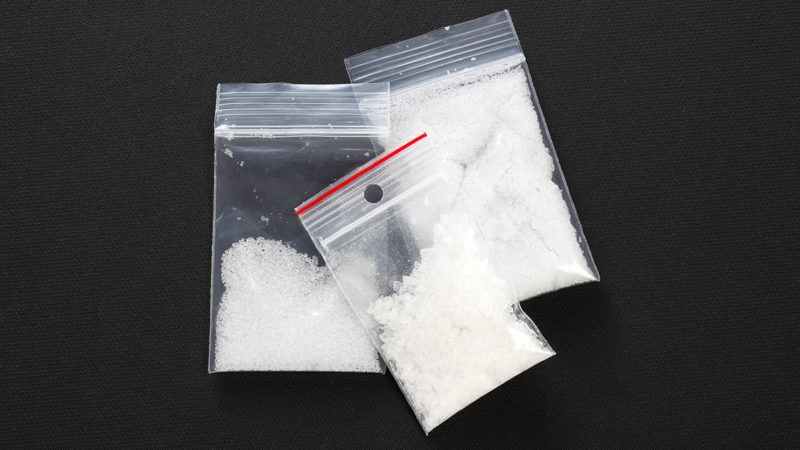A New Synthetic Opioid Is Killing American Drug Users
But we can't ban our way out of the research chemical problem.

A new culprit has surfaced in America's seemingly endless game of opioid Whac-A-Mole: the research chemical isotonitazene. The drug, which has no approved clinical uses, began appearing in autopsy reports in the U.S. within the last year, likely as a result of efforts to curtail the importation of illicit fentanyl.
"Isotonitazene is the most persistent and prevalent new opioid in the U.S.," forensic toxicologist Barry K. Logan told Vice in March. Logan is now reportedly seeing "40 to 50 isotonitazene-related deaths per month in the U.S. compared to about six per month last summer."
In the November 2019 issue of Drug Testing and Analysis, Peter Blanckaert and his team at the Belgian Early Warning System on Drugs identified isotonitazene as a highly potent analog of a pain reliever called etonitazene, which was developed in the 1950s. Etonitazene is currently in Schedule I of the Controlled Substances Act, a category that is legally reserved for dangerous drugs with a high abuse potential and no accepted medical use. Isotonitazene is nevertheless sold online in undiluted form. Blanckaert et al. wrote that the drug "represents an imminent danger" to users.
Isotonitazene seems to have arrived in the United States following an aggressive global crackdown on illicitly made fentanyl. The timing makes sense: When governments focus their supply interdiction efforts on one substance, the market responds with alternatives.
Research chemicals are not inherently bad. Many are developed by academics and pharmaceutical companies searching for treatments that are more efficacious or have fewer side effects than drugs already on the market. But these experimental compounds are also a godsend for chemists looking to skirt bans with novel compounds that have not yet been added to the Controlled Substances Act.
We can't ban our way out of the research chemical problem. Drugs like isotonitazene and the various fentanyl analogs that have been killing Americans for years are synthesized from precursors that are also used to make approved medicines and other legal products. They can be produced in large quantities for less money than their plant-based analogs, and they also tend to be more potent than the drugs they mimic.
While isotonitazene might never be as popular as fentanyl, its presence in American communities is a troubling reminder that prohibition makes drug use more dangerous.


Show Comments (43)